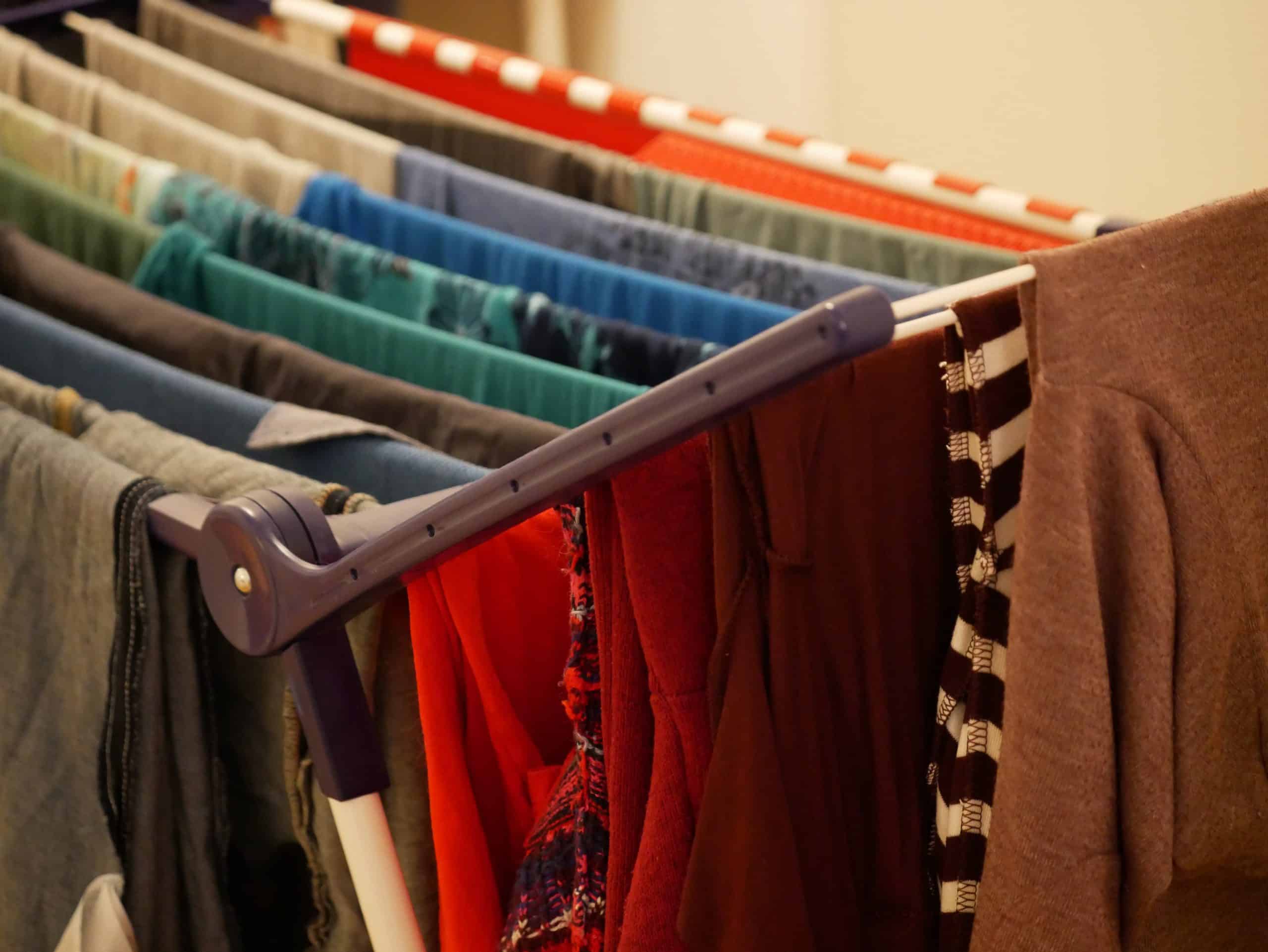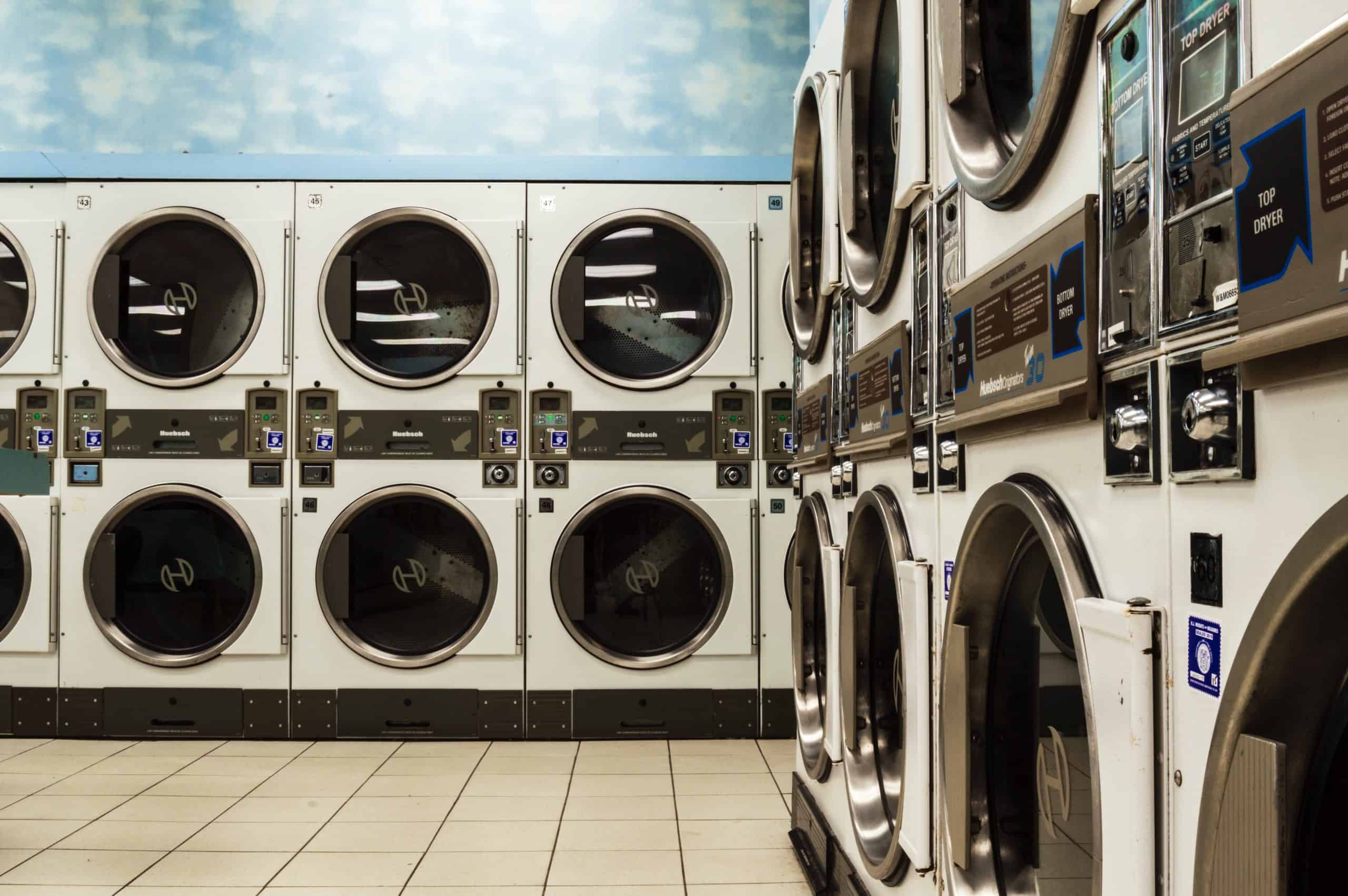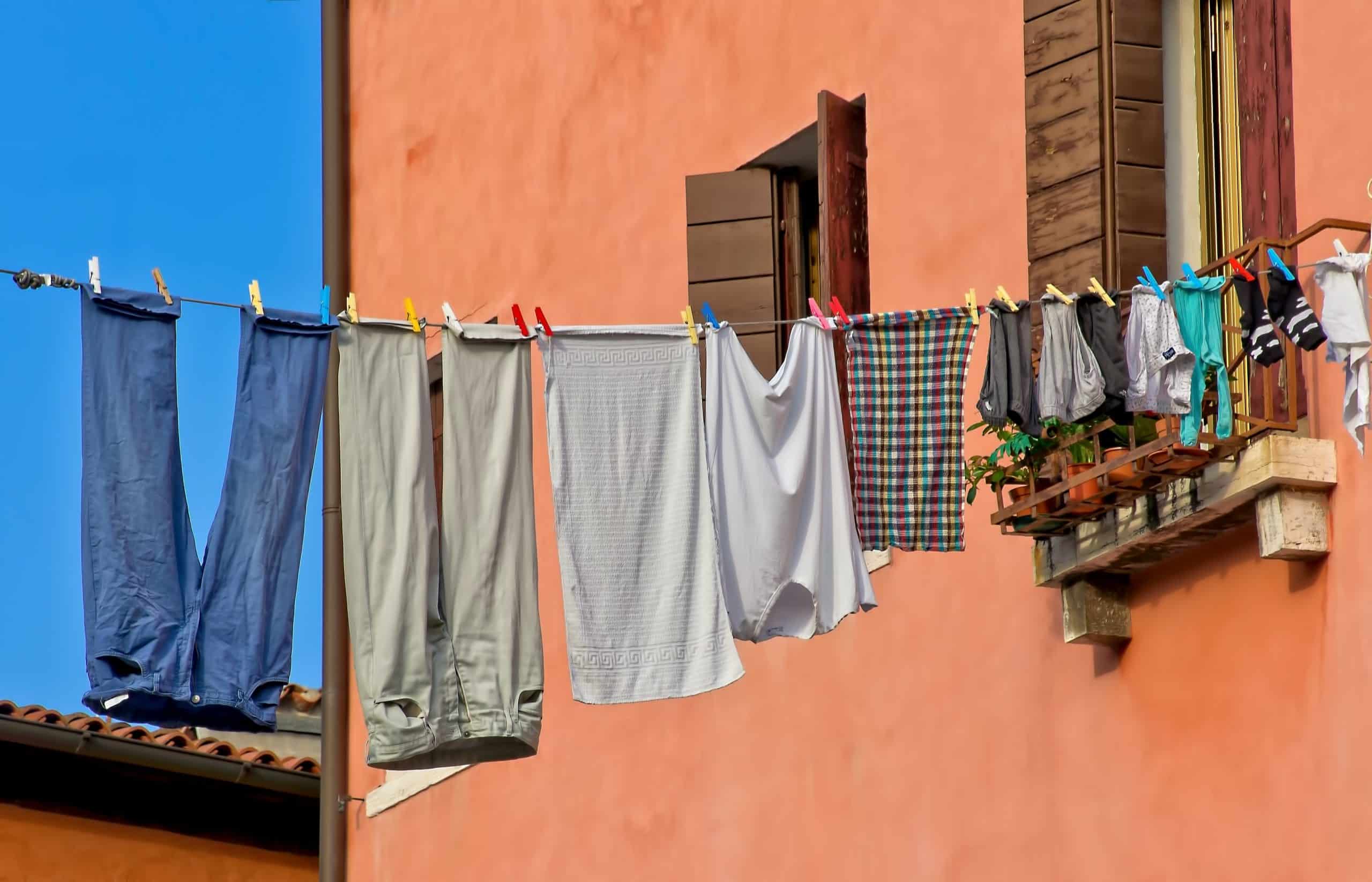Many things about doing laundry have changed over the years, from high-efficiency washers to highly concentrated laundry detergent. What remains the same is that you can waste plenty of money washing your clothes if you’re not paying attention. If you want to save money on laundry, you need to make smart decisions about everything from when is the best time to do laundry to save energy to the types of washing machines and detergents you buy.

Photo: A R on Unsplash
By following some simple tips not only will you save money when doing laundry but you’ll also prolong the life of your clothes and your washer and dryer. Here are 14 frugal ways to save money on laundry.
Only wash clothes and linens that are dirty
My children wear a shirt for 5 minutes and then throw it in the hamper. (Actually, they throw it on the floor, but the goal is the hamper.) It’s not necessary to wash clothes every time you take them off. If you wore something for a few hours, hang it up again and re-wear it. If you wore a sweater over a shirt, don’t wash the sweater. It’s still clean. Jeans, bras and pajamas can be worn for several days before they need to be washed, unless you were sweating like crazy or spilled something. Washing clothes only when needed will not only save you money on detergent and energy, but you’ll prolong the life of your wardrobe.
Same goes for linens. Hang your towels up properly after use, so they can be reused for several days.
Use the correct amount of laundry detergent
If you want to save money on laundry detergent, read the label on your bottle and use the minimum amount recommended. Laundry detergent is highly concentrated, so the amount you need to use is smaller than you might think. I measured out the amount needed, per the instructions for my detergent, and for a small load (which I never run), you need only 2 tablespoons.
If you have a high efficiency, front-loading washer, and you see suds when your clothes are washing, you are using too much soap. As a test, throw in a load of dirty clothes with no soap. If you see any suds, your clothes are coated with soap residue, and you have been using too much soap. Reducing the amount of detergent you use per load will make your bottle last longer.
Wash on the coolest setting recommended
Read the labels on your clothes and follow the instructions. Many things should only be washed in cold water. Unless you’re dealing with oily stains, the warm or cold water setting on your machine will generally do a good job of cleaning your clothes. Switching your temperature setting from hot to warm can cut a load’s energy use in half. By following the instructions, your clothing will also last longer.
Wash and dry your clothes for less time
Many machines now have “quick” load settings. Unless your clothes are really dirty, they don’t need to be washed for 55 minutes. Experiment with the settings to determine the shortest wash cycle that gets your clothes clean.
The same rule applies to the dryer. Do some trials to figure out the shortest drying time needed to get your clothes completely dry. A timed setting might work better for you than one of the standard settings.

Photo: Marshall Williams on Unsplash
Do your laundry during off-peak hours
The best time to do laundry to save money is when your electric company offers off-peak rates. In the summer, it’s cheaper to do laundry in the early morning before it gets hot and everyone turns up the air-conditioning. In the winter, people crank up the heat on cold mornings or take long, hot showers, so wash your clothes at night, after dinner hours and when people are lowering their thermostats before bed.
One caveat: If you run your washing machine or dryer while you are sleeping and there is a malfunction, you will not notice until you wake up. By the next morning, the machine might have been running for hours and the off-peak savings will be negated.
Use the correct soap for your washing machine
Make sure you read the instructions about which types of detergent work best (or don’t work at all) in your washing machine. If you use regular detergent in a high efficiency washer, not only will your clothes be coated with soap residue, but you will be overworking your machine.
When choosing between liquid, powder or pod version of laundry detergent, powder is generally the cheapest. Laundry pods are convenient because they come in pre-determined amounts, but they won’t save you money because their convenience makes them more expensive than large bottles of liquid detergent or large boxes of laundry powder.
Run full loads
It should be obvious that running multiple small loads in your washer and dryer costs more in detergent and energy than running one large load. It may be irritating to watch the dirty clothes pile up, but don’t be tempted to wash a half load of whites or darks alone. Wear some items in the same color family and then do your washing. If you need to wash a particular garment because you have to wear it for a specific occasion, gather up enough laundry to do a regular-sized load; don’t throw it in the washer on its own.
On the other hand, don’t overload the machine with more clothing than it can handle. Your clothes won’t get as clean, and your washer won’t last as long.

Photo: Ricardo Gomez Angel on Unsplash
Line dry your clothes
If it is practical, line dry some or all of your clothes, whether with drying racks, hangers hung on the shower curtain rod or an old fashioned clothes line. Hanging clothes in the sun is a free way to get clothes dry and remove stains. Plus, line drying clothes prevents clothes from shrinking.
Take care of your washer and dryer
Light, regular maintenance of your dryer will keep it working efficiently, so you don’t waste money on energy costs. Leave the door open on your front-loader washing machine after every load so it can dry. Clean your dryer’s lint traps after every load and vacuum the dryer vent regularly. If these areas get clogged, your clothes won’t dry during a regular dry cycle. Lint build-up in the vent can be a fire hazard.
If you’re not sure how to take care of your laundry machines, read the instructions for your washer and dryer. This equipment is much more complicated than it used to be, so you want to be familiar with all the settings and maintenance needs. You should know how and when to clean each machine.
Shake it out
Shake out your clothes, sheets and towels before you put them in the dryer. If they’re all balled up, it will take longer to dry them. You might even want to check the dryer halfway through the cycle and shake them out again as they can become balled up as they tumble.
Skip the dryer sheets
Dryer sheets just coat everything with wax. If you want your clothes to be soft, smell nice and dry quickly, make your own felted wool dryer balls. These DIY dryer balls are cheaper and more Earth-friendly than dryer sheets or fabric softener, can cut your drying time to save money and can be scented with essential oils if you like a fresh scent to your clean clothes.
Look for energy-efficient models
When you replace your machines, look for ENERGY STAR and EnergyGuide labels. According to the federal government, “ENERGY STAR clothes washers clean clothes using 35% less water and 20% less energy than standard washers. ENERGY STAR clothes dryers use 20% less energy than conventional models. When shopping for a new clothes dryer, look for one with a moisture sensor that automatically shuts off the machine when your clothes are dry.”

Photo: Sarah Brown on Unsplash
Hand wash your clothes
While this advice might not be practical for today’s families, washing clothes in a laundry sink or large buckets will certainly save you money over buying, maintaining and operating an electric washing machine.
Be savvy when using a laundromat
You can use many of these tips to save money at the laundromat or in an apartment building’s laundry room. You definitely want to maximize each load of washing because you will pay for each. In addition, consider price comparing different laundromats if you’re close to several. Don’t leave your clothes unattended because if someone takes your belongings or dumps your load out and some of your items fall out and get lost, you’ll have to pay to replace the lost pieces.
You may also enjoy reading:

[…] 15 money-saving laundry tips – Living On The Cheap. […]